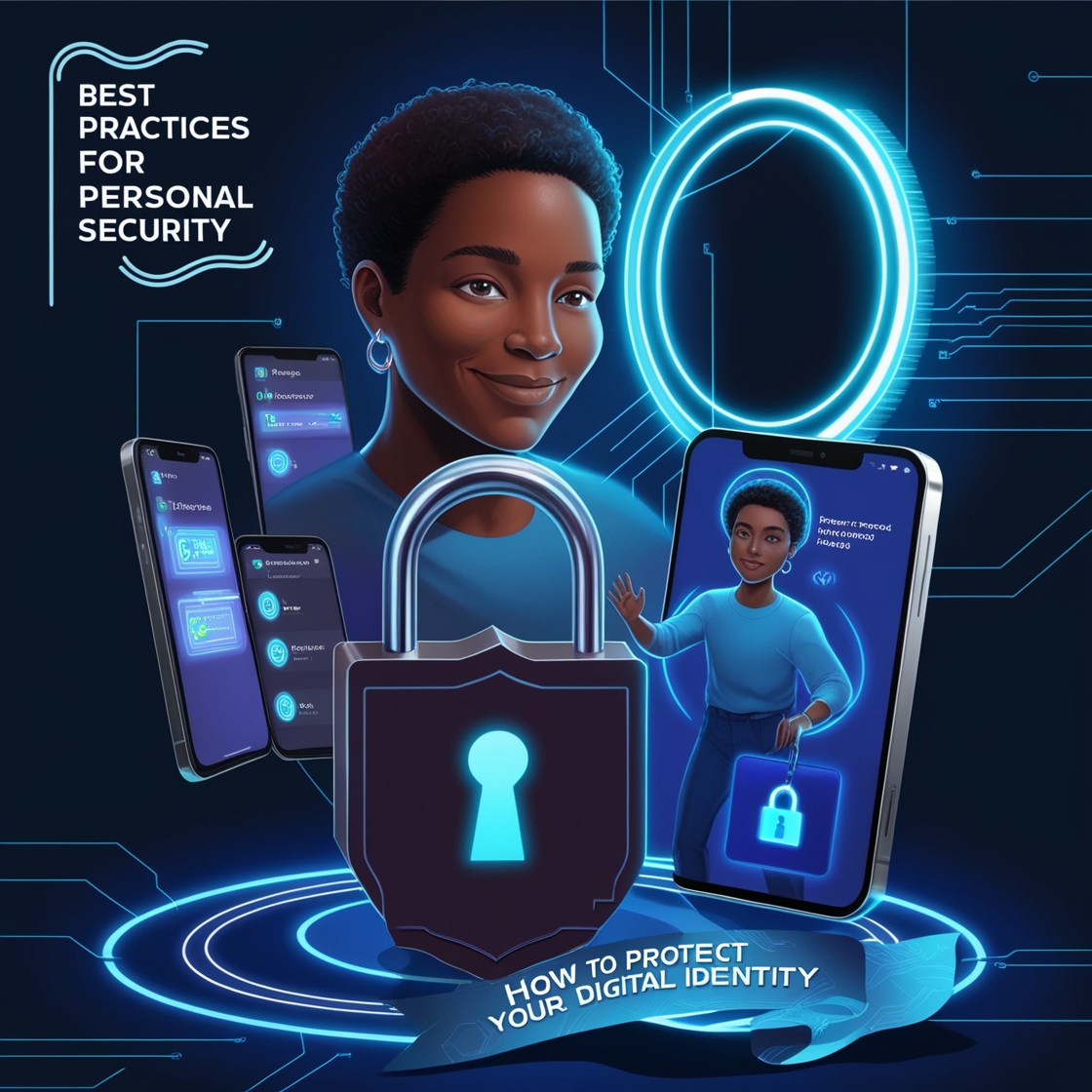Introduction
In our digitally-driven world, protecting your digital identity is as essential as safeguarding your physical wallet. With the internet playing a central role in daily activities, the risk of digital theft, scams, and personal security breaches has risen significantly. Understanding how to protect your digital identity is the first step in maintaining personal security and avoiding costly or distressing consequences.
What is Digital Identity?
Your digital identity is a collection of data that represents you online. It includes everything from your social media profiles and email addresses to bank accounts and medical records. Each online interaction, subscription, or transaction adds to this identity, forming a unique digital persona that can be used or misused.
Common Threats to Digital Identity
Identity Theft
This occurs when a malicious actor obtains enough information about you to impersonate you, often for financial gain. Identity theft can be highly damaging, affecting everything from your credit score to your emotional well-being.
Phishing Scams
Phishing involves deceptive communications, often disguised as legitimate requests from trusted entities, aiming to steal sensitive data such as passwords or credit card numbers.
Data Breaches
Data breaches occur when hackers infiltrate a company’s database, exposing vast amounts of user information to criminals who might misuse it.
Malware and Spyware
Malware and spyware infect devices to capture sensitive information, sometimes enabling hackers to view passwords, banking details, and other private data directly.
Why Digital Identity Protection is Essential
The consequences of a digital identity breach go beyond financial losses. Many victims experience emotional stress, and some deal with the repercussions for years, especially if financial records or personal documents are compromised.
Creating Strong and Unique Passwords
A strong password is your first line of defense. Avoid using predictable information like birthdays or pet names. Instead, consider these tips:
- Use a mix of uppercase, lowercase, numbers, and symbols.
- Create unique passwords for each account.
- Consider using a password manager to store and organize your passwords securely.
Enabling Two-Factor Authentication (2FA)
Two-Factor Authentication (2FA) adds an extra layer of security by requiring a secondary verification step. Here’s how to set it up:
- Check account settings for 2FA options.
- Opt for text messages, authenticator apps, or biometrics for verification.
- Avoid using email for 2FA whenever possible, as it may be less secure.
Avoiding Phishing and Social Engineering Attacks
Recognizing phishing attempts is crucial:
- Always scrutinize unexpected emails, especially if they ask for sensitive information.
- Be cautious of links and attachments from unfamiliar sources.
- Familiarize yourself with social engineering tactics, where attackers manipulate users into divulging information.
Managing Social Media Privacy Settings
Social media can be a gateway for hackers to gather personal details. Here’s how to limit access:
- Adjust privacy settings to restrict who can view your posts.
- Limit sharing of personal information, like your location or family details.
- Consider setting up private profiles or using nicknames.
Securing Personal Devices
Devices carry a wealth of personal information and need protection:
- Set up secure passwords or biometric locks on all devices.
- Install trusted antivirus and anti-malware software.
- Regularly review app permissions and remove apps that seem suspicious.
Keeping Software Updated
Outdated software often contains security vulnerabilities:
- Update operating systems and applications regularly.
- Enable automatic updates for convenience.
- Avoid using outdated software that no longer receives security patches.
Using VPNs for Secure Browsing
A Virtual Private Network (VPN) masks your IP address, creating a more secure online experience. Here’s how to make the most of a VPN:
- Choose reputable VPN providers with strong encryption policies.
- Use a VPN when connecting to unsecured networks or handling sensitive information.
Recognizing and Avoiding Public Wi-Fi Risks
Public Wi-Fi is convenient but risky. To stay safe:
- Avoid accessing sensitive accounts on public Wi-Fi.
- Use a VPN to encrypt data while on public networks.
- If possible, use mobile data instead for sensitive transactions.
Regularly Monitoring Financial Statements and Accounts
Keeping a close eye on your financial activity can help you catch fraudulent transactions early:
- Review bank statements and transaction alerts regularly.
- Use financial monitoring tools that provide instant notifications for suspicious activity.
- Contact your bank immediately if you notice any irregular transactions.
Backing Up Important Data
Backing up data is critical in case of loss or hacking:
- Use cloud storage or external drives for backup.
- Regularly update backups to reflect recent changes.
- Keep backups in a secure, separate location from your main devices.
Conclusion
Protecting your digital identity requires a proactive approach and a willingness to implement multiple layers of security. From creating strong passwords to using VPNs, these practices are essential to ensuring your online presence remains secure and private.
FAQs
1. What is the best way to secure my passwords?
Use a password manager and create unique, complex passwords for each account.
2. Is public Wi-Fi safe for browsing?
Generally, public Wi-Fi isn’t secure. Use a VPN for added security or avoid sensitive activities on public networks.
3. How often should I check my financial statements?
Monthly checks are standard, but using tools for real-time monitoring provides better security.
4. Can social media really expose me to identity theft?
Yes, sharing personal details on social media can help hackers gather information about you. Be cautious with what you post.
5. Do I need to pay for antivirus software?
Paid antivirus programs often provide more comprehensive protection, but free versions can still offer a basic level of security.
